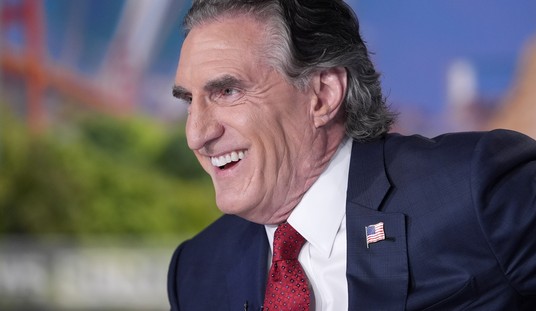Five months after launching his quixotic bid to unseat an incumbent president in the primary, the windmill made quick work of Joe Walsh. The former congressman withdrew from the Republican quasi-race this morning, just three days after garnering only one percent of the vote in Iowa. Walsh complained bitterly that the GOP is “not a party, it’s a cult,” but claims he’ll keep fighting to defeat Trump no matter what:
Former US Rep. Joe Walsh is ending his uphill challenge against Donald Trump for the 2020 Republican presidential nomination, after suffering a crushing loss in the Iowa GOP caucuses in which he received only 1% of the vote.
“I am ending my candidacy for president of the United States,” Walsh told CNN’s John Berman on “New Day.” “I got into this because I thought it was really important that there was a Republican — a Republican — out there every day calling out this president for how unfit he is.”
“It’s not a party. It’s a cult. He can’t be beat in the Republican primary so there’s no reason for me, or any candidate, really to be in there,” Walsh continued.
Perhaps cultism is in the eye of the beholder. There are more than a few Republicans who see Never Trumpism as a cult, too, and Walsh as having succumbed to it. It’s also tough to take a candidate seriously about cultism who’s simultaneously accusing you of being part of one and also asking for your vote at the same time.
At any rate, it’s not clear what Walsh hoped to accomplish, but whatever it was, he didn’t. Walsh didn’t attract much money or support even from the Never Trumper coalition, except for one notable figure:
His candidacy, however, attracted conservative lawyer George Conway, the husband to the President’s counselor Kellyanne Conway. Conway donated to Walsh’s campaign and had informally advised his campaign.
A political adviser who didn’t tell his client that an incumbent president can’t be beat in a primary isn’t much of an adviser, to be honest. That hasn’t happened in a long while if ever, and the only challenges that ever turned out to be serious involved major party figures with enough of a constituency to matter. Even Pat Buchanan’s 1992 challenge to George H. W. Bush was never a serious threat to his renomination, but it did enough damage to make him vulnerable in the general election. The most serious challenge in my memory was Ted Kennedy’s 1980 run against Jimmy Carter, which might have succeeded except for (a) Kennedy’s inability to answer an interview question about why he wanted the office, and (b) Chappaquiddick.
Walsh and Bill Weld are nowhere near the kinds of candidates who could command both the support and donors needed to challenge an incumbent president, no matter who or what party he was in. It’s not about a “cult”; it’s about an incumbent who has a natural advantage and who has largely pushed the party’s agenda. With the exception of tariffs (on which Trump is actually succeeding for now), it’s tough to point to any Trump policy that didn’t fall within the general agenda of the GOP prior to Trump.
For most of Trump’s supporters, that’s the calculation, which is why Walsh is so off-target. It’s not that they’re cultists; it’s that they’re cynics. They’re supporting someone they’d probably never like under any other circumstances because he’s delivering on the policies they like and fighting (and winning) battles against cultural opponents who usually have the upper hand. If Walsh had actually bothered to connect with Trump voters outside of the bubble, he might have figured that out. The only way a primary challenge would have succeeded in this cycle is if a figure of equal weight and temerity had emerged. And neither Weld nor Walsh even come close.








